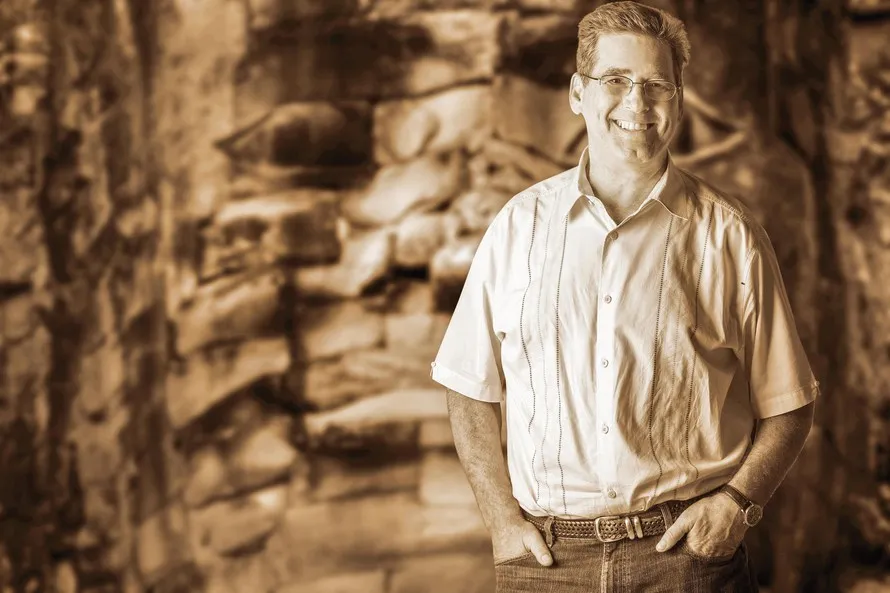
He was traumatized from his experiences in the brutal war, and used his skills in writing to spread the message of peace and facts on the atrocities of the war to the American people.
He was born on 27 January 1949 in Lorain in Ohio in the US. After working as a professor for many years at universities of Arkansas, Old Dominion, and Penn State, he established the William Joiner Institute 30 years ago. This organization is dedicated to familiarizing the Vietnamese literature to the American people. For Bruce Weigl, Vietnam is his second home. He said he would spend half the year in the US and the other half in Vietnam if he was still healthy and fit to travel more often.
Bruce Weigl began to be known in the US after he published his first poem on the Vietnam War called the "Song of Napalm" in 1988, which was then nominated for a Pulitzer prize. In this poem which is dedicated to his wife he writes, “Still I close my eyes and see the girl/Running from her village, napalm/Stuck to her dress like jelly/Her hands reaching for the no one/Who waits in waves of heat before her.”
Bruce Weigl is sad about Vietnamese children still suffering from the effects of the Vietnam war. He often introspects on the brutal atrocities of the war. He says that after leaving the battlefield in Vietnam at the end of 1968, he carried the wound and pain of the tremendous sufferings in his heart: “Inside me the war had eaten a hole/I could not touch anyone/The wind blew through me to the green place/where they still fell in their blood/I could hear their voices at night.”
He knew he had made a mistake by fighting in Vietnam, so he was determined to do something for Vietnam just to ease his insecure feelings. He became a translator of the pages written by Vietnamese soldiers who had died, expressing in their poems their love for their homeland, for their parents, and for their loved ones. He cried often when reading these poems and verses.
He realized that during the wartime amid all the terrible bombings and killings, he was just an aggressive and arrogant person while the Vietnamese soldiers were kind and gentle people who wrote poetry during the war. Poems don’t lie. He began translating Vietnamese poetry to understand Vietnamese culture and the fate of Vietnamese people better. The poems he translated from Vietnamese touched many American readers. These translations helped many Americans understand many untold historical facts of the Vietnam war that the US government had been hiding from the American population.
After the Reunification of Vietnam in 1975, Bruce Weigl was among the first US veterans to return to Vietnam. He also adopted a Vietnamese girl who he named Hạnh Nguyễn Weigl, from an orphanage in 1996. At that time he told the orphanage that he was adopting a Vietnamese child but promised that in the future he would return her as a Vietnamese lady. He would never endeavor to convert her into an American. Indeed, Weigl's family have been trying their best to instill Vietnamese culture in Hạnh Nguyễn. They mostly speak in Vietnamese with her and prepare and eat Vietnamese food. He also organized many meetings between Hạnh Nguyễn and Weigl's Vietnamese friends. Weigl's efforts have been highly praised and appreciated by Vietnamese media.
When Bruce Weigl adopted his daughter and took her back to the US to raise, he was determined not to raise her in the American way of life. He wanted her to be a good Vietnamese who loves the Vietnamese culture and retains Vietnamese values. He has also written a book titled "The Circle of Hanh". Several translators wanted to translate the book into Vietnamese, but Bruce Weigl had politely declined. He had wanted to wait for his adopted daughter to be good enough in the Vietnamese language and then be able to translate the book by herself. Finally in 2010, his daughter Hạnh Nguyễn Weigl translated “The Circle of Hanh”, and the Vietnamese version was published by the Vietnam Women's Publishing House.
Bruce Weigl is a renowned contemporary poet with highly influential works in American poetry. In 2010, he also published the poem book “Sau mưa thôi nã đạn” (After the rain stopped pounding) into Vietnamese. However, what he is most interested in is working as a translator and making Vietnamese literature better known to the American people. He has translated more than twenty Vietnamese books into English to be published in the US. His latest translation is of the poetry book by Trần Lê Khánh called “Sự bắt đầu của nước” (The Beginning of Water).
Being a professor at American universities for years, Bruce Weigl believes that Vietnamese literature has a strong foundation and a long history but has not been made widely known to readers around the world. To successfully reach this goal, Bruce Weigl thinks Vietnam must invest significantly in professional translators who can express their love for Vietnam in English translations for international readers.
At the age of 73, Bruce Weigl still attends meetings and talks in Vietnam where participants exchange ideas about Vietnamese literature. When he knew that the Hồ Chí Minh City Writers' Association was organizing a writing event last month for writers who were born after 1975, Bruce Weigl came to the event. He said that literature had saved his life from the oppressions of the Vietnam War. Now the generation is being born in peacetime. Now is also the time to make significant efforts to take Vietnamese literature beyond borders to show the beauty of Vietnam, as Vietnam is increasing its global reach.




















